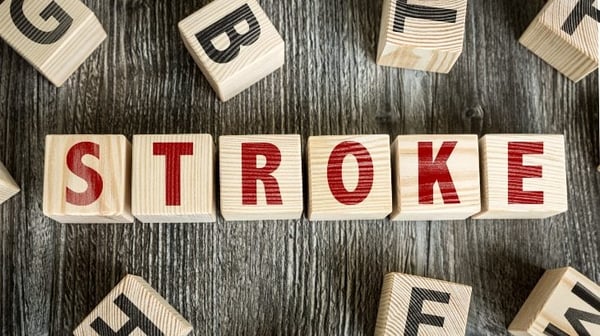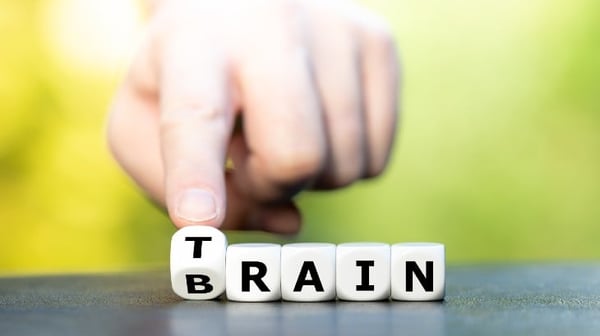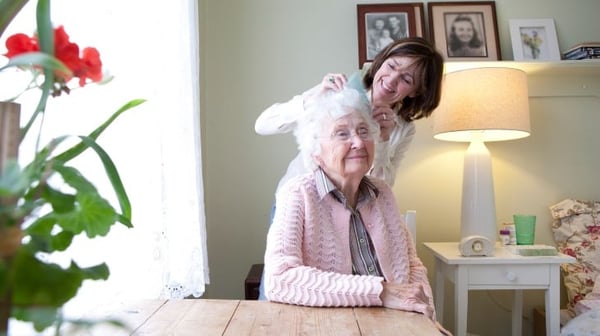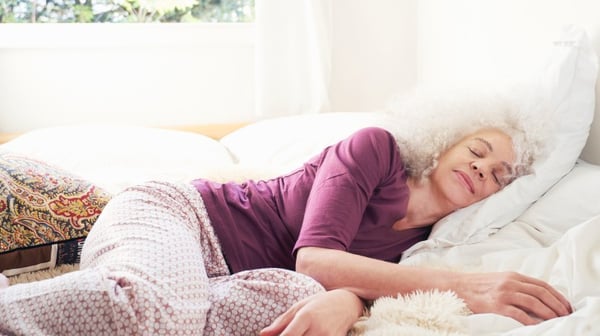How to recognise the signs of a stroke
As we age, the chances of having a stroke increase, particularly for individuals with underlying health problems. As such, being able to identify the signs of having a stroke could be vitally important in protecting you and your loved ones. In this guide, we’ll explore some of the warning signs of a stroke, the leading causes, and what to do if someone has a stroke.

You may also be interested in...
A stroke is a medical emergency and serious condition where the blood supply to the brain is cut off. A stroke is a life-threatening event that leads to hospitalisation and in some cases, ongoing symptoms. According to the Stroke Association, a stroke occurs every five minutes in the UK.
How to recognise the symptoms of a stroke
What are the symptoms of a stroke? Below, we've listed some of the key signs of a stroke both in women and men.
Facial weakness
The person's face, mouth or eye area may have dropped. Their ability to smile may be impaired.
Arm weakness
They may have difficulty raising both arms.
Speech problems
Their speech may seem unclear, slurred, or they may be unable to talk.
Difficulty with balance
They may seem unsteady, dizzy or report a numbness on one side.
Blurred vision
If they appear to have difficulty in seeing, this may be a sign of a mini-stroke or stroke.
FAST test
One handy way of identifying the main signs of a stroke is to remember the FAST test, which organisations like the NHS and Stroke Association refer to:
- F – Face.Is the person able to smile and has their face visibly changed?
- A – Arms.Can they lift both arms and are they experiencing any numbness?
- S – Speech.Has the person’s speech been affected? Can they understand what you’re saying, and vice versa?
- T – Time. If you notice any of these symptoms, time is of the essence, so call 999.
What to do if someone has a stroke
If you witness someone experiencing a stroke, first aid should be administered as soon as possible, so you should call for an ambulance. The faster you act, the better the chances of reducing the impact of stroke. When speaking to the emergency services, use the word 'stroke' when describing the symptoms so that the medical responders can be fully prepared on arrival.
While you wait for the medical services to arrive, here are some things you can do:
- Get the person to lie on their side. Encouraging the person to lie on their side with their head elevated can increase blood flow to the brain.
- Talk to them. Gathering information could be vital in helping medical staff treat the patient. Ask when the symptoms started (write it down), and if you don't know the person well, whether they're on any medication or have any health conditions.
- Check their vital signs. If someone has no pulse or isn’t breathing following a stroke, first aid trained individuals should begin CPR immediately.
- Remove restrictive clothing. It's important the person is comfortable after having a stroke, so loosen any clothing that may impact their breathing.
- Stay calm. While it can be stressful to witness someone experience a medical emergency, staying calm can be reassuring to that person at a difficult time.
What not to do if someone had a stroke
If you feel there is a good chance that someone has had a stroke, time is of the essence. Therefore, you should avoid letting the person fall asleep, or attempting to drive them to the hospital yourself. You should also avoid giving them food, water or medication in case their ability to swallow has been affected. Instead, call 999 so that emergency services can respond as quickly as possible.
Leading causes of stroke
While anyone can experience a stroke at any time – including younger adults and children – the chances of having a stroke increase with age. The brain is reliant on oxygen and nutrients from the body’s circulation of blood; when this is restricted, the brain’s cells begin to die. So it’s perhaps unsurprising that high blood pressure is the single biggest cause of stroke, while diabetes, high cholesterol and irregular heartbeats (known as atrial fibrillation) also increase the likelihood of strokes.
In addition, while the signs of a stroke in women are the same as for men, pregnancy and the contraceptive pill can lead to an increased risk of stroke among women – read the Stroke Association's guidance on women's health and strokes. Other risk factors include family history – you may be at a higher risk if a close family member has had a stroke. And ethnicity is also a factor; according to various studies, black and south Asian communities experience a higher prevalence of strokes.
How to prevent a stroke
While there is no magical formula for preventing a stroke, there are lifestyle factors that may increase the chances of having a stroke. That’s because certain activities and behaviours can increase your blood pressure or contribute to clotting. If you’re looking to reduce the risk of having a stroke, here are some changes you could consider making if applicable to you:
- Quit smoking
- Drink less alcohol
- Exercise more frequently
- Avoid unhealthy foods.

Support after having a stroke
If you're looking for additional support and information if you or a loved one have experienced stroke, below are some helpful resources.
NHS
Information on strokes and managing the recovery. You can also search for local support services on the NHS website.
Stroke Association
An organisation dedicated to rebuilding lives following a stroke.
Different Strokes
A charity for "younger stroke survivors" with peer support.
Find out more about whether you or your loved ones can apply for life insurance after a stroke.
Further Sources
https://www.nhs.uk/conditions/stroke/
https://www.stroke.org.uk/what-is-stroke/are-you-at-risk-of-stroke
https://www.ucihealth.org/blog/2016/05/stroke-dos-and-donts
https://www.ucihealth.org/blog/2016/05/stroke-dos-and-donts
https://academic.oup.com/qjmed/article/103/1/17/1538905
https://bmcmedicine.biomedcentral.com/articles/10.1186/s12916-016-0618-2
More articles and guides

Keep your brain sharp

Caring for ageing parents

